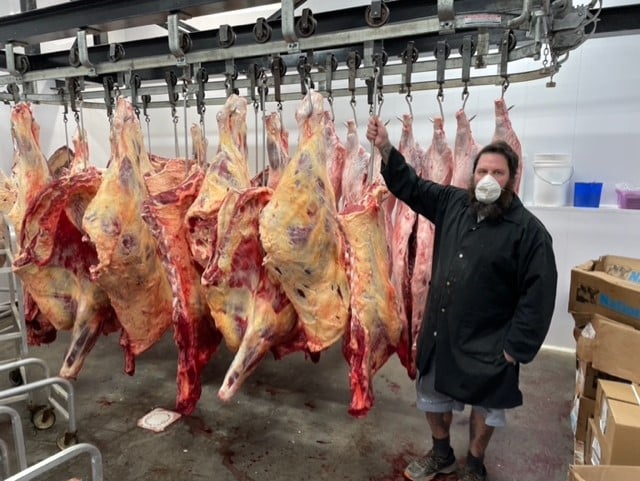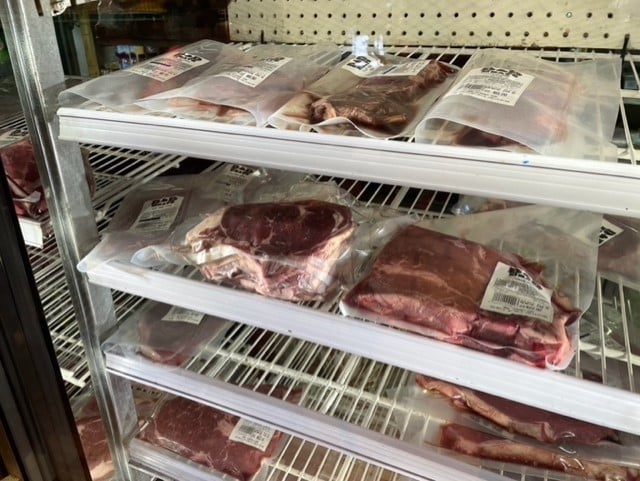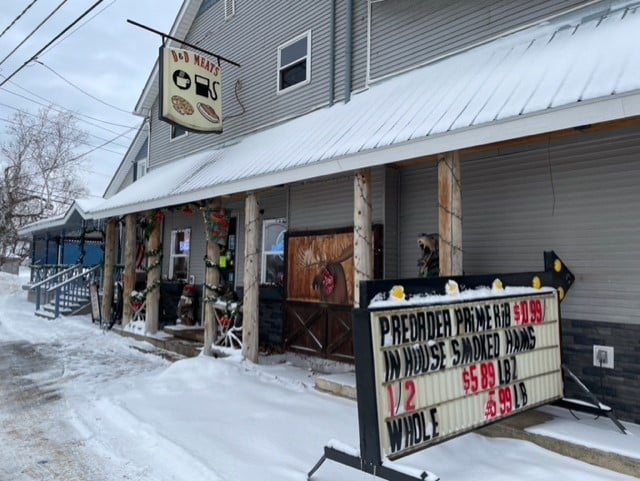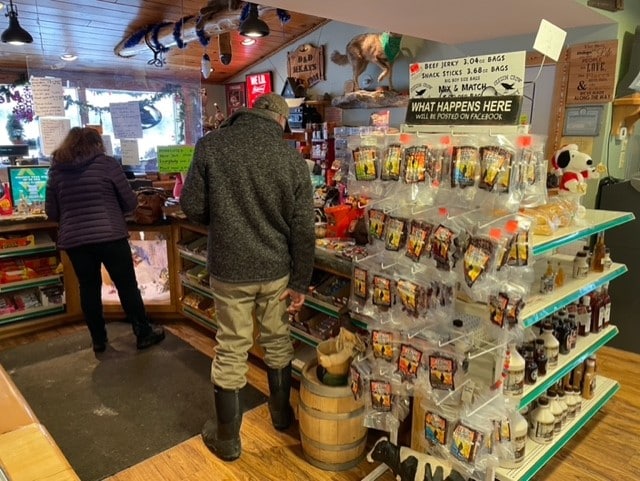By Tim Rowland
At the quiet intersection that marks the hamlet of Sciota, where the Adirondack mountains give way to the Canadian plains, Shane Dutil is armed with a knife. It’s a good way to cut meat, but little defense against the forces that have rocked his industry, that thin but crucial band of sinew that stands between pastured animals and the region’s supper tables.
When the pandemic hit and the nation’s four major packing houses went dark, all the North Country, it seemed, flocked to the doors of D&D Meats, a small, community slaughterhouse and market, which was not burdened with supply chains and other complexities that come with the mass processing of animals.
“More people started raising animals, and more people started coming to local markets,” Dutil said. “We were maxed out.”

That wave of local awareness and community connectivity faded as meat returned to supermarket shelves and shoppers returned to supermarket shopping. Still, some of those customers remained. “We retained maybe 5%,” Dutil said. “That sounds like a small number, but 5% is still good.”
What’s not good is the state of small slaughterhouses in general. “I called a slaughterhouse in Connecticut because I was looking for some equipment,” Dutil said. “I told the guy who answered the phone, ‘You can’t be the owner; you sound too happy.’ He said ‘I am the owner, and I’m happy because I’m closing my doors.’”
North Country farmers limp along on a scant patchwork of slaughter facilities, often driving hours to take their cattle and pigs to a USDA-approved processor, allowing them to sell their meat to stores and restaurants. Processing appointments, or “slots” are treated like a commodity in their own right — bought, sold and traded among producers who must reserve slaughterhouse time sometimes more than a year in advance.

With demand so high, it might seem there would be more potential business owners angling to open a slaughterhouse. The reason why there are not rests on those supermarket shelves, where the big four processors’ great economies of scale mean they can process a carcass for a fraction of the 82 cents a pound it costs D&D.
Forget that there’s no help to be found for local processors, and even if there were, the pandemic has wreaked havoc on schedules and put everyone on edge. If people get sick on a construction site the work can wait, but “if you have a cooler full of meat, what are you going to do,” Dutil said. And forget that without a USDA certificate, D&D and its customers are limited in where their products can be sold.
The family business, started in 1981, used to be a labor of love; today Dutil just hopes to make it through the day without some other unexpected impediment to his business.
Still, with the effort of one rolling a boiler up a mountain, Dutil is pushing ahead. With the help of the North Country Chamber of Commerce, he recently wrote and won a $200,000 grant to help achieve USDA certification for his own products, and, perhaps, become a USDA slaughterhouse available to local farmers as well, although that is not assured.
That would be significant because it would allow D&D to even out its workload through the year, supplementing income and giving a break to a crew that Dutil said has been dedicated and long-serving — including family members who basically volunteer their time.

But even here, the pandemic has slowed the awarding of grant money, and while Dutil is waiting for the check to arrive, the price of equipment is going up by the day. The grant specs say he has three years to spend it — Dutil, with only the slightest of smiles, says he’s afraid it might take three years to get it. “They say the money will come, but they keep pushing back the date,” he said.
The machines would automatically slice bacon and package burger, as well as vacuum seal meat packaging and inject brines. This would take significant pressure off his people and, of course, saving time is saving money.
Dutil is also carefully following President Biden’s plan to dedicate $1 billion of CARES Act money to independent meat packers. It remains to be seen how that will play out, but Dutil said that the pandemic proved that the food Americans count on being able to put on the table is threatened in times of high stress. “Four big packers shouldn’t control everything in the U.S.,” he said.
But until that dynamic changes, there is one thing that average consumers can control: They can make the effort to buy local.

D & D Meats is a local meat processor, small grocery, and convenience store open 7 days a week where you can find their small-batch-made Jeezum Crow Beef Products year-round.
You can learn more about D&D Meats here.
Like this story? Sign up for our email newsletter to receive future feature stories.
